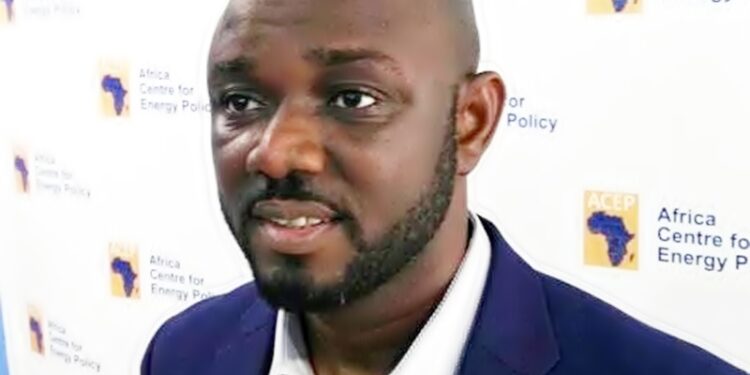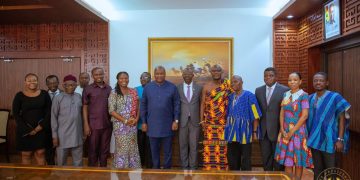ACEP’s Benjamin Boakye Calls for Strategic Policies to Propel Ghana’s Renewable Energy Agenda
Executive Director of the Africa Centre for Energy Policy (ACEP), Benjamin Boakye, has called for deliberate and actionable policies to drive Ghana’s renewable energy agenda.
Speaking at the NorvanReports and Natural Resource Governance Institute (NRGI) X Space discussion on “Powering Ghana’s Future: Political Promises vs CSO Demands – Are We Ready for the Green Shift?”, Mr Boakye emphasized the need for job creation, investment security, and local capacity development within the energy sector.
Prioritizing Job Creation Through Policy
Mr Boakye underscored the importance of policies aimed at youth employment through renewable energy projects.
“If you’re going to procure solar equipment, let’s ensure 30% of the benefits go to young people,” he proposed, advocating for initiatives that empower the youth to create jobs and take active roles in Ghana’s green transition.
He stressed further that all political parties must prioritize policies that address youth unemployment, adding that practical implementation, rather than mere promises, is essential for meaningful impact.
Speaking further during the X Space Discussion, he raised concerns about the country’s over-reliance on imported renewable energy components like solar panels and batteries, advocating for policies that incentivize local assembly and manufacturing.
“If we cannot produce from scratch, we should at least assemble components locally. This could provide opportunities for skills transfer and innovation,” he noted.
Bridging Policy Gaps in Renewable Energy
The ACEP Executive Director criticized the lack of coherence in Ghana’s renewable energy plans, including delays in meeting targets for renewable energy penetration.
He recommended a holistic infrastructure plan that distinguishes between off-grid and on-grid renewable energy systems.
“Rural communities require off-grid solutions, while urban and industrial areas need integrated on-grid systems,” he said, urging the government to map energy needs and infrastructure requirements comprehensively.
Promoting Local Content Beyond Representation
Mr Boakye further questioned the government’s current approach to local content in energy projects, describing it as superficial.
“Local content should not mean just putting a Ghanaian face on a business. It should involve building production capacity within the country,” he argued, adding that policies should focus on skills transfer, local innovation, and long-term economic growth.
Advancing Ghana’s Renewable Energy Agenda
To position Ghana as a leader in renewable energy, Mr Boakye called for investment in research and development, support for student-led innovations, and the creation of local prototypes.
He referenced Brazil’s ethanol success story as an example of how targeted investments can yield significant economic benefits.
“We should think about producing energy locally, not just importing solutions,” he urged.








